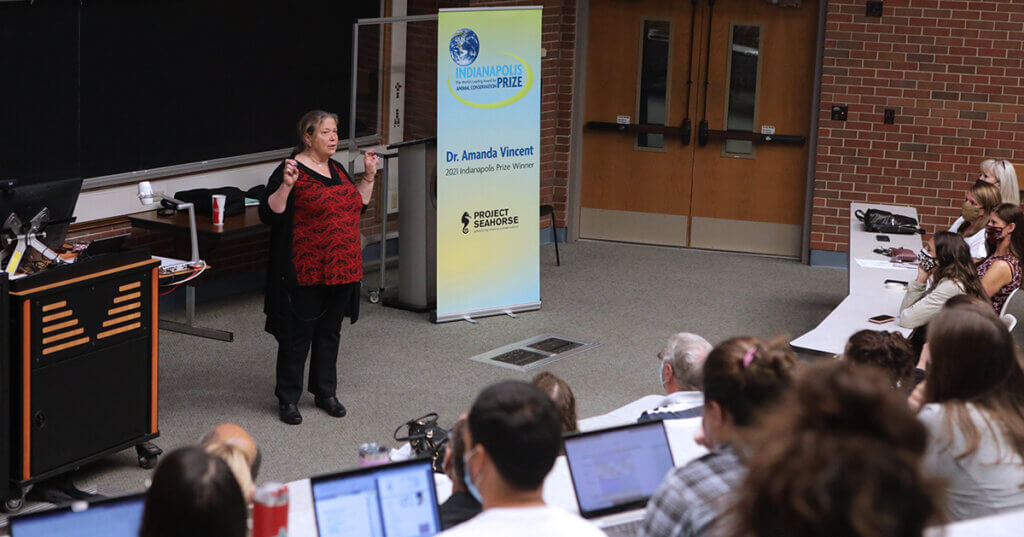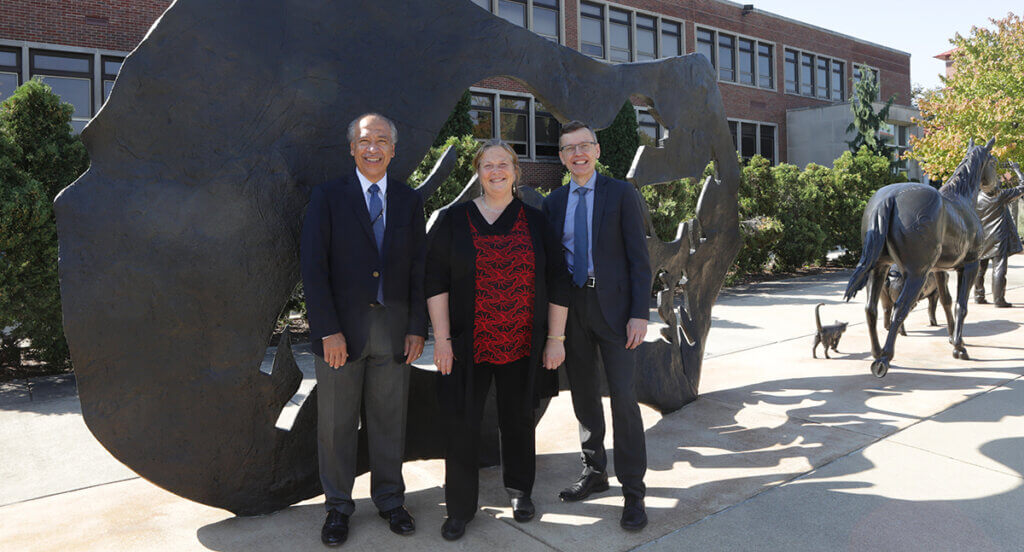
The Purdue University College of Veterinary Medicine had the privilege of hosting a special visit by the recipient of the 2021 Indianapolis Prize, Dr. Amanda Vincent, co-founder and director of Project Seahorse and professor at the Institute for the Oceans and Fisheries at the University of British Columbia. Recognized as the world’s leading award for animal conservation, the Indianapolis Prize is a signature conservation initiative of the Indianapolis Zoological Society that honors and rewards conservationists who have achieved major victories in advancing the sustainability of animal species.
The first marine conservationist to win the award, Dr. Vincent began her special lecture in Lynn Hall Monday, September 27, by saying she was thrilled to speak to an audience of students studying to become veterinarians. “Veterinarians are an essential part of the conservation story,” Dr. Vincent explained. She continued, “…I invite all of you whether you enter small animal or farm animal or large animal or exotic animal practice to really consider a conservation ethos in your work.”
Dr. Vincent introduced her topic by characterizing her presentation as “…a voyage in which we use seahorses to save the seas.” She then recounted her work as the first biologist to study seahorses in the wild, and to document the extensive trade involving the small marine fish as well as to launch a project for their conservation.
Credited with drawing the world’s attention to the 47 known species of seahorses, and recognized for her global conservation leadership, Dr. Vincent successfully guided the global conservation community to include seashores on the International Union for Conservation of Nature (IUCN)’s Red List. She then worked to influence the United Nation’s Convention on International Trade in Endangered Species (CITES) to adopt landmark legislation to limit the global seahorse trade to sustainable and legal exports.
Dr. Vincent and her Project Seahorse team now are focused on bringing an end to harmful fishing practices, such as bottom trawling, where industrial nets are dragged across the ocean floor, catching everything in their paths and destroying vital habitats such as coral reefs, mangroves, and seagrass beds in the process. She then encouraged the students to be her ambassadors by talking about the effects of bottom trawling and finding ways to contribute through seafood choices, votes, and communication.
She concluded by advising students to prioritize their use of time to ensure they are making time for what is most important, and to be courageous. “So please recognize that forward progression requires an awful lot of courage and it’s not comfortable,” Dr. Vincent said.
Since 1996, Dr. Vincent and Project Seahorse have trained more than 175 professional conservationists and inspired countless amateur conservation advocates to contribute to seahorse science and conservation through a citizen science program called iSeahorse. As a result of her initiative, there are now active seahorse conservation projects across six continents.
Granted biennially, the Indianapolis Prize awards $250,000 to an animal conservationist who has achieved major victories in advancing the sustainability of an animal species or group of species. The Prize also awards five finalists with $10,000 each. Dr. Vincent was in Indiana to be honored at the Indianapolis Prize Gala that was held September 25.

